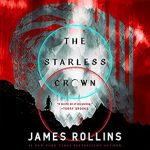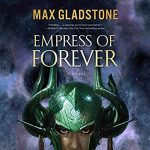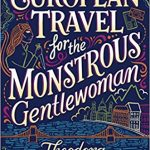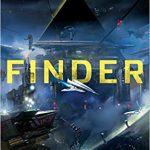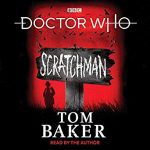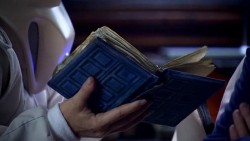 When I think of “spoilers” I hear the word spoken in River Song’s particular sing-song, usually accompanied by the endearment, “Sweetie”, and inevitably followed by the opening of her Tardis-blue diary.
When I think of “spoilers” I hear the word spoken in River Song’s particular sing-song, usually accompanied by the endearment, “Sweetie”, and inevitably followed by the opening of her Tardis-blue diary.
The Doctor and River Song are living their relationship out of sync with time relative to each other. The first time the Doctor meets River, she has known him all of her life but he’s never met her before. Every time they meet after that, each of them remembers different pieces of their relationship, but on the whole, at least so far, what she remember is his future, and what he remembers is her future — and he knows that her future is going to end badly. His is going to contain an unbearable amount of pain. But then, so does his past. However, there’s the inevitable time paradox involved. His future is her past, so what has happened must happen. Even though River knows it will bring him agony, she must let it happen–she can’t spoil it. The actual fate of the universe is at stake. “No spoilers,” are allowed.
But we regular humans seem to like spoilers. Or we do according to an article that appeared earlier this month in Wired that immediately went viral. The research indicates that spoiling the ending of the book or the big surprise finale of a TV show helps most people enjoy the story.
This makes sense, doesn’t it? How many readers thumb to the end to find out what happens? Honestly? I know I do. Not at first, because the ending wouldn’t make sense. But after a third or maybe halfway, then I’m interested in seeing if I’ve figured things out. I’m curious if I’ve guessed “whodunnit”. Or if the evil villain I thought it was really is the actual “big bad”, because sometimes the “man behind the curtain” conceals yet another “man behind another curtain”. Of course, sometimes that “man” is a “woman” or a vampire, or a dragon. To each genre their own.
Even when I find out the ending, I still don’t know how the author gets there. The journey is always entertaining, even when I am certain of the destination. And when I have guessed wrong, then I really, really want to know how the author fooled me.
If we humans didn’t enjoy predictability in our fiction, we wouldn’t re-read the same books over and over, which we do. We also wouldn’t re-make the same story in different settings. West Side Story is still Romeo and Juliet. It was a good story both times, but it was the same story, dressed up in different clothes. Everyone knew how it ended.
The thing about thumbing to the end is something that is different with ebooks and digital media. I wonder what effect it will have?
Listening to an audiobook, it’s just difficult to zip to the end and then zip back to where you were. This is particularly true since people often listen to audio because their hands are otherwise occupied with something important, like driving. The medium just doesn’t lend itself to the idea of the casual flip to the back of the book and then flop back to where you were before. Mysteries are particularly popular in audiobooks, and this maybe the reason. It’s just plain hard to find out if “the butler did it” until the end, even if you really, really want to.
With ebooks its a lot easier. I can bookmark the page I’m on, go to the end, and then go back to my bookmark. It’s possible. It’s even easy. I’m realizing that I just don’t do it, and I don’t know why. New medium, new method.




